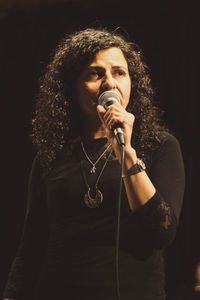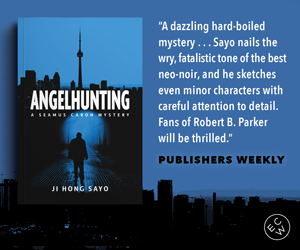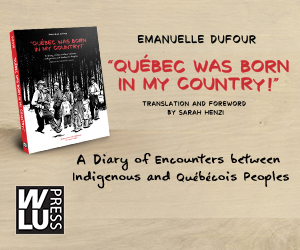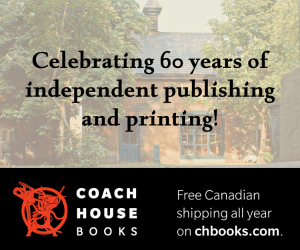“In my poetry, I make room for what escapes stories,” an interview with Bänoo Zan
By James Lindsay
Bänoo Zan is one of those incredible poets that give back to poetry and community more than they take. As well as being the author of two collections of poetry, she is also an educator, translator and runs the Shab-e She'r reading series. Her most recent collection, Letters to My Father, is an elegant collection of meditative poems written in the wake of her father’s death. But what could have been a memoir becomes a more philosophical approach to exploring death, family and culture.
James Lindsay:
I’d like to start by asking about the introduction to your most recent poetry collection, Letters to My Father. You begin by stating the catalyst for these poems was the death of your father, but then, you write, “Now this introduction is where I am expected to write a confessional.” But I have to ask, where did you see the expectations for a confessional coming from and why did you need to break with them?
Bänoo Zan:
I asked a couple of people to look at the manuscript before its final submission to the publisher. It seemed to have left them in a state of curiosity to know more about the “story” behind the poems. As a sort of mirror-image effect, this also left me in a state of wishing to “disclose” more of the story, to make it more “available” to the readers. This may be explained in the context of the practice of poetry nowadays, the fact that many poems are no more than descriptive and/or narrative stories.
On the other hand, poetry is decipherable in the context of cultures it derives from. No work of art makes any sense if you isolate it from its historical, artistic, or social context. As my poetry relies on non-Western beliefs and values, it may even sound more inaccessible to a reader who has little awareness of other cultures.
Disclaimer: In order to answer this question, I asked one of the people mentioned above. They tactfully (or honestly) could not remember what they meant or what their original impressions were. They even suggested I may have mentioned the expectation for a confessional as a literary device to set the stage for my definition of poetry and its difference with stories later in the introduction. I would like to agree, as it would present me as a sophisticated writer capable of fictionalizing poetry!
JL:
Well, for me it certainly seemed like a sophisticated device you were using. I like that Letters to My Father resists the conventional memoir narrative tropes of trying to present a complete picture, a knowable human life. Not to linger too much on your introduction, but you go on to state, “I flee from stories. Stories distort the truth by virtue of their claim to facts.” Is there something that felt more “true” to you about using poetry to tell this story? Are you even trying to tell a story?
BZ:
In my own way, I am trying to “present a complete picture, a knowable human life.” Only, to me, you do not know people if details distract you from their heartbeat. You know them in a non-pictorial, non-narrative sense. You know them the way you know yourself.
Many of us have disappointingly similar lives on the outside. Narrative or descriptive genres make an implicit claim that what shapes us is what happens to us. I don’t see us that way. While I acknowledge the powers that shape us, I also acknowledge the power of us to shape us. I felt I would not do justice to the ethical and existential dilemmas portrayed in the book had I decided on a more overtly narrative approach.
Stories are presumptuous. They claim they are who we are. I mistrust narratives that obliterate me, replace me, and speak for me. I do not belong to my story. It is my story that belongs to me. I am not part of my story: it is my story that is part of me. In my poetry, I make room for what escapes stories.
Your CanLit News
Subscribe to Open Book’s newsletter to get local book events, literary content, writing tips, and more in your inbox
So, I am not “trying” to tell a story, but this does not mean I am not telling one or several. I offer archetype, blood, flesh, culture, and conflict. These are raw materials for stories. Stories help you approach the heart. Poetry is the heart. When reading or listening to poetry, you are at the epicenter of your life discovering wisdom and self-knowledge under your rubble.
Poetry first came to me at a moment of loss, and it keeps manifesting at moments of loss. Its elliptical nature helps deconstruct pain. It mediates between pain and its public expression. By enacting the story off the page and focusing on how it impacts the consciousness, poetry reflects the resourcefulness of the individual. I have a theory that great poetry reflects the story of its creation by stylistically mirroring it.
JL:
“Great poetry reflects the story of its creation by stylistically mirroring it.” I love that. Stylistically the poems here are minimal and elegant, sometimes with only one word per line, and the overall effect reminds me of the meditative quality often associated with grief. Was the writing of this book a cathartic experience for you? Is it possible to “learn” from grief?
BZ:
These poems have taken place at a battlefield. Like the warriors in the Shahnameh I found myself challenging my blood-relation in the name of family. This was a fatal encounter—though I didn’t spill blood, or I think I didn’t! Is that why catharsis happens through art? That you know what atrocities you are capable of, but haven’t committed? Is it because you find you are not as vengeful and blood-thirsty as you thought you were? Is it, in other words, because you fail the heroic test? After the book was published, the heaviness gradually lifted. It is hard to write, but it is even harder not to.
The teacher in me naively claims it is possible to learn from anything. If you know how to learn, you can even learn from yourself, she says. But the fact that learning is possible doesn’t guarantee it always happens. Learning happens in a state of humility: if you believe that learning is better than denial. Some of us resist learning because it implies the end of surrender to circumstance. Learning implies laying siege to the self-absorbed castle of your ego. It implies opening your gates to the world, and admitting that you are not at its centre.
To be honest, I am not sure if I have learned from my grief. If anything, I have learned I can hurt. I have learned I cannot be proud of my strength and resilience. I have learned I am lonely. I have learned that I am not prepared for life. I also have learned that it takes an incredibly long time to learn lessons worth learning.
I am not even sure what qualifies as grief: the pain of losing your parent or the pain of losing your country. I am not even sure if what I have learned is because of one or the other, both or none.
JL:
Maybe we’re using the wrong word here when we say, “learn.” Perhaps “change” would be more appropriate, like how everything in life has the potential to be an agent of change. With that in mind, I want to ask you about the Shab-e She'r Poetry Night you founded because, in your words, you wanted to, “include as many different cultures and literary styles as possible.” Since starting the night, what have you “learned” from such diversity or how has it changed you as a poet?
BZ:
Here is where I am these days:
Diversity and inclusion are about including people from outside your community. Even if you are a minority but in your community-building projects focus on your own community, you are not working for diversity.
Diversity is not a fashion statement. It is not holding a megaphone at rallies. It is working on rice fields in 35°C and 95% humidity. When you work for diversity, you don’t look pretty even to those who “love” diversity!
Diversity means having people from other communities among your friends. Mind you, lovers don’t count! Everyone wants to sleep with “others,” but not everyone wants to be friends with them!
Diversity is not a business transaction. It is genuine support of other communities without asking them what they can do for you in return.
Supporters of diversity are not necessarily found among minorities.
Diversity fosters art that promotes peace and beauty.
In Canada, progressives uncritically support minorities and xenophobes uncritically dismiss them. There is not much middle ground left for thoughtful challenge, and hence, no hope for improvement in the situation of the most powerless within ethnic communities. Cases of racism, sexism, homophobia, and violence are either not addressed at all by “friends” or generalized to the whole communities by “enemies.”
Justice in art is served best by promoting artists good at art!
The mark of a good artist is critical and loving openness to themselves and others.
There is a difference between an artist and an activist: An artist is someone who may be banned by others; an activist is someone who may ban others. An artist has a lot of questions; an activist has a lot of answers.
It is getting increasingly difficult to tell the difference!
Going back to your question about “change,” I feel I have grown so much older. I don’t know if it is because I am learning wisdom, or if it is because of the pressures I feel in my role as a peace-maker.
The views expressed by Open Book columnists are those held by the authors and do not necessarily reflect the views of Open Book.
James Lindsay has been a bookseller for more than a decade. He is also co-owner of Pleasence Records in Toronto, a record label specializing in post-punk, odd-pop and avant-garde sound pieces.



